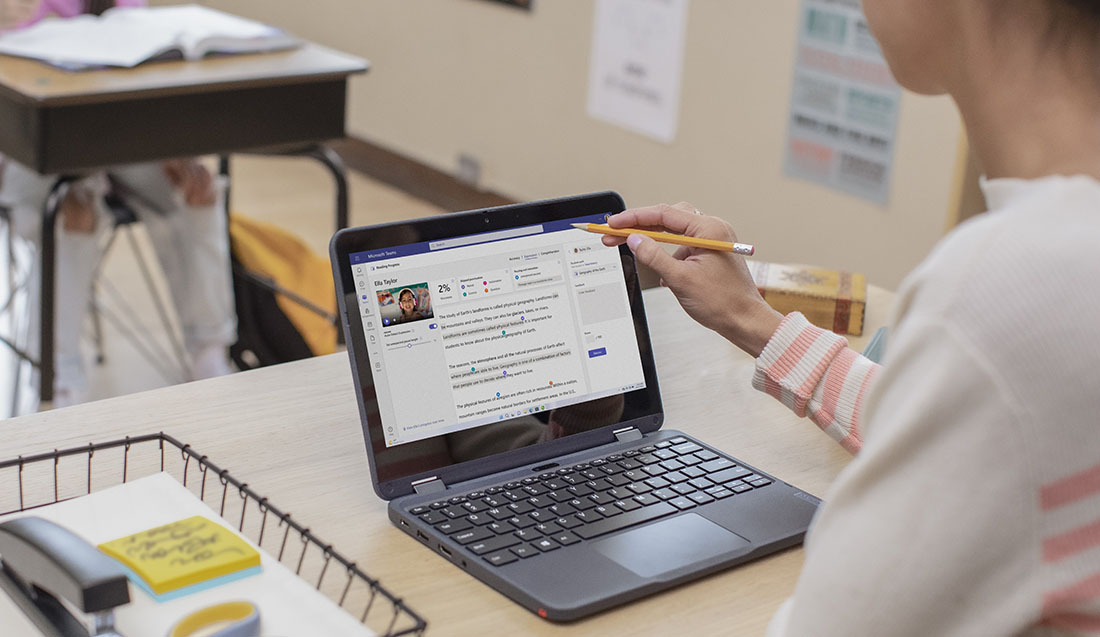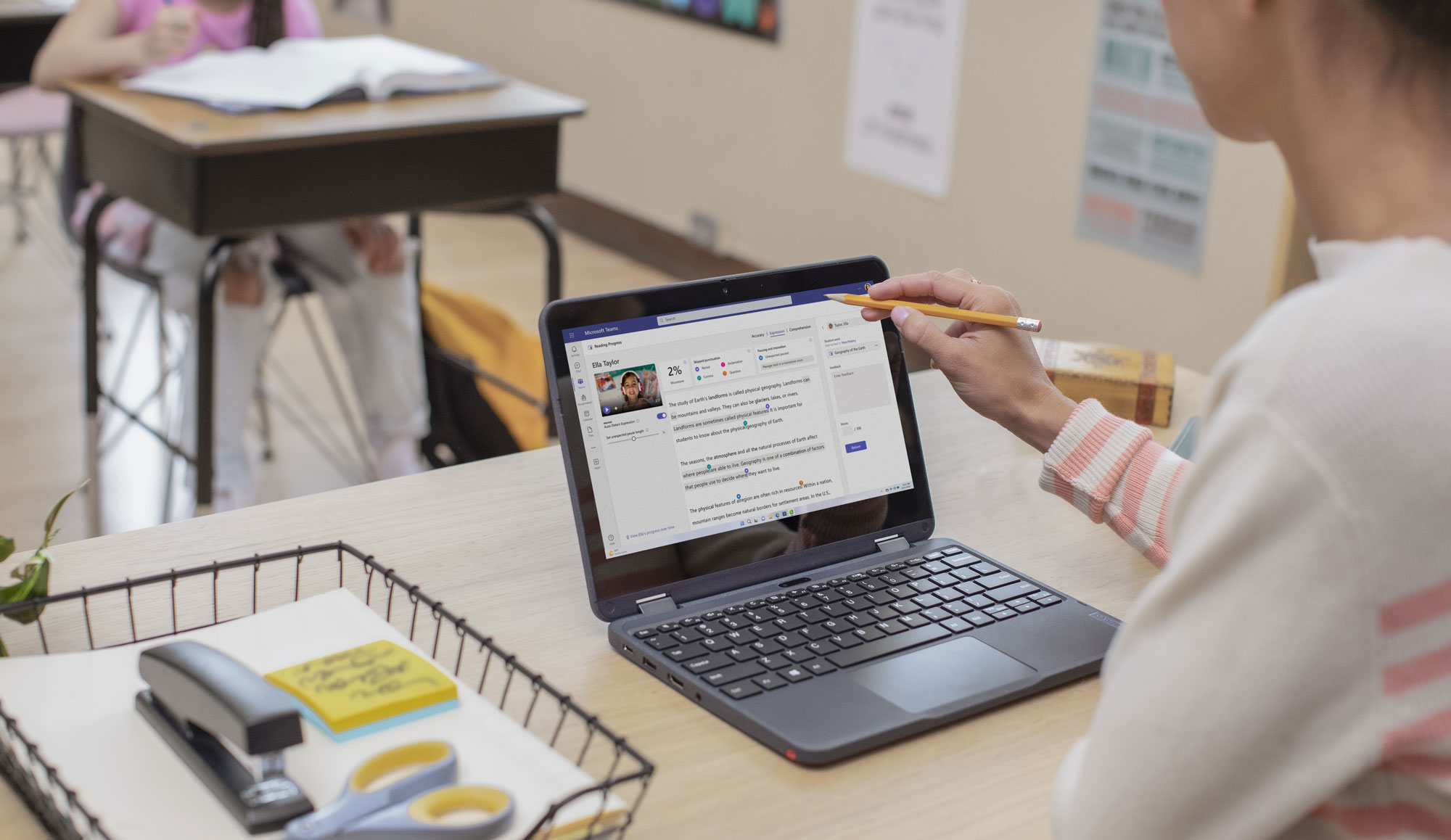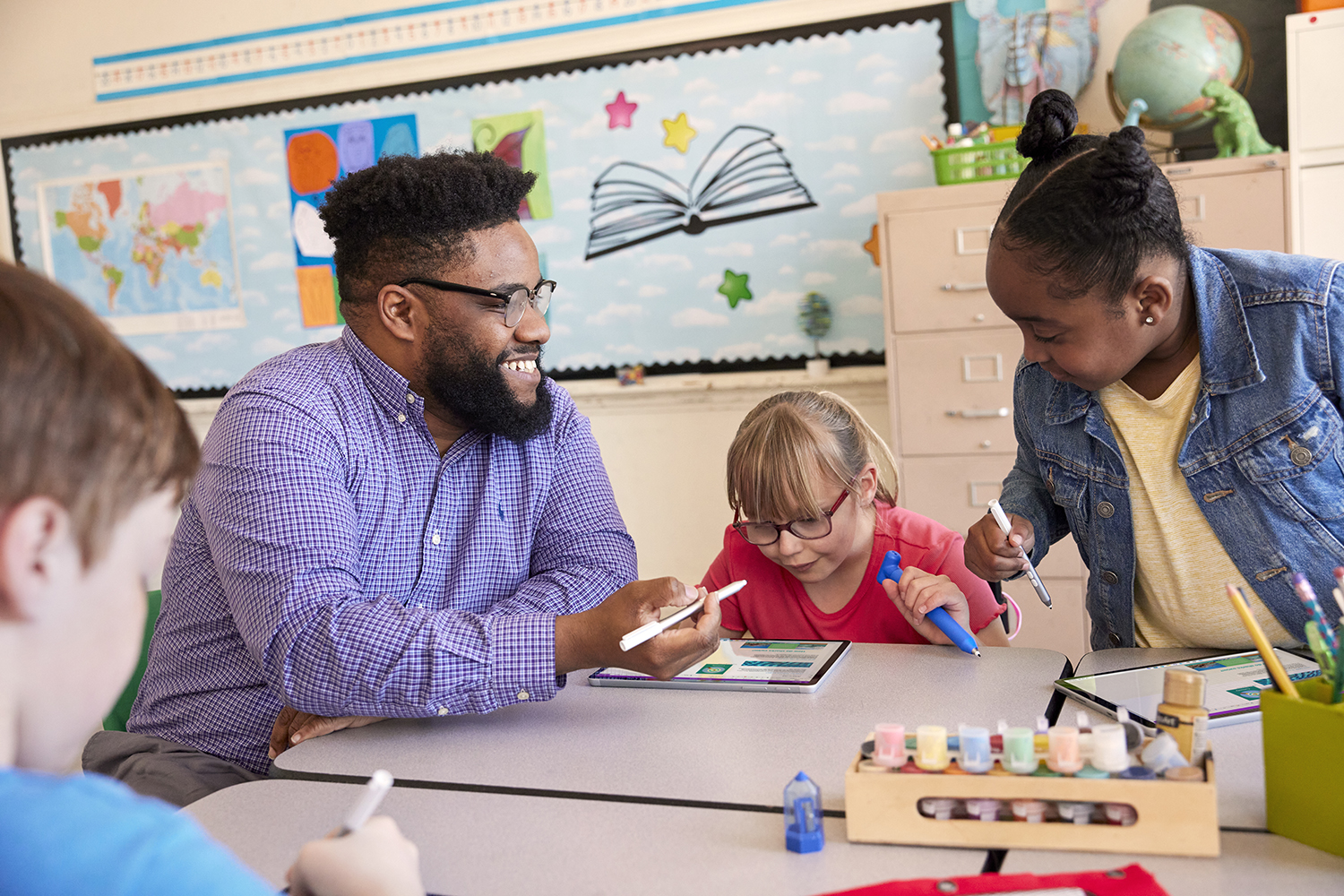At Microsoft Education, we are proud to showcase how our technology solutions can lead to remarkable improvements in student outcomes. With a thoughtfully researched approach, Sarah Buist, Head of Digital Strategy, and Tom Harman, Modern Foreign Language Teacher and Digital Leader from The Royal Grammar School Newcastle, UK, studied the impact of using Microsoft Teams and Reading Progress with students. Join us as we explore this inspiring story of real-life educators where innovation seamlessly aligns with intention, fostering a brighter future in education.
Any intervention made as an educator to your classroom practice should aim to improve student outcomes. Introducing technology is no different. However, how do you know that the intervention has succeeded?
The decision was made two years ago to issue Surface devices to each pupil and teaching staff in the senior school at the Royal Grammar School Newcastle and to increase the use of technology in the classroom. I was determined that if the benefits of technology were really going to be harnessed, interventions needed to be delivered with a thoughtful approach.
I had done a lot of research and reading about small individual classroom inquiries, and I decided that our digital leaders in school should take a considered and measured approach when introducing new technology in the classroom. Tom Harman, one of our digital leading team decided to complete a classroom study using Microsoft Teams and Reading Progress with two of his Spanish classes.
Using Reading Progress for teaching students an additional language provided our educators with information about errors in oral reading, including mispronunciation, omissions, repetitions, insertions, and self-corrections as well as phonological errors. The data produced was used to improve student reading in many ways—it allowed us to identify common mispronounced words and other patterns, which then enabled more effective adaptive teaching to respond to the class.
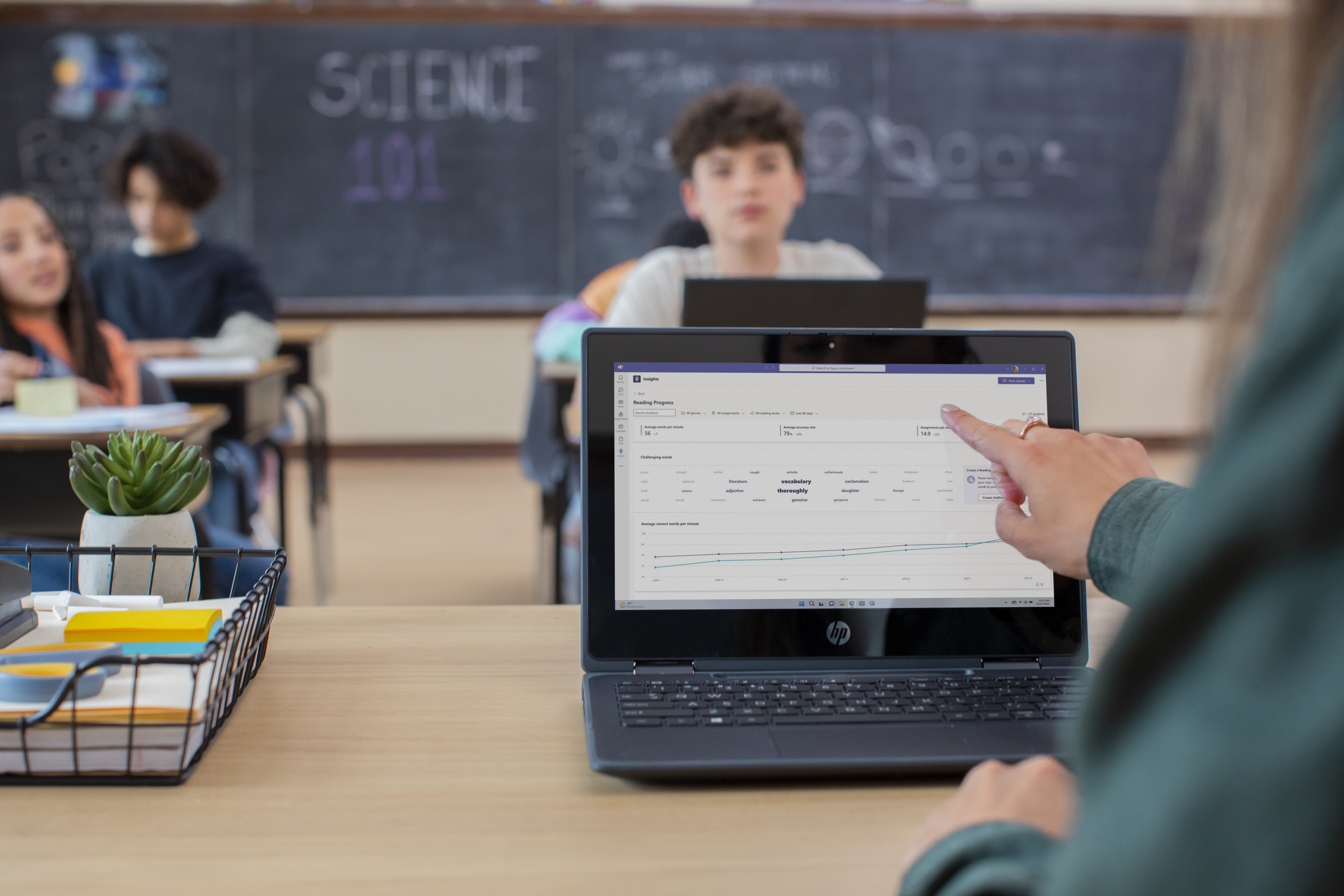
A teacher reviews Education Insights while students sit at their desks in a classroom.
When he saw the transformational potential of Reading Progress, he was quick to introduce it to most of his classes and to those of his colleagues. This intervention was something that Tom was going to do any way, just this time we wanted to measure the impact it was having.
Tom decided to complete a small-scale randomised trial, with two teaching sets of similar ability and age students, with the primary aim to improve reading fluency in Spanish over an eight-week period, by using weekly homework reading assignments using Reading Progress in Microsoft Teams.
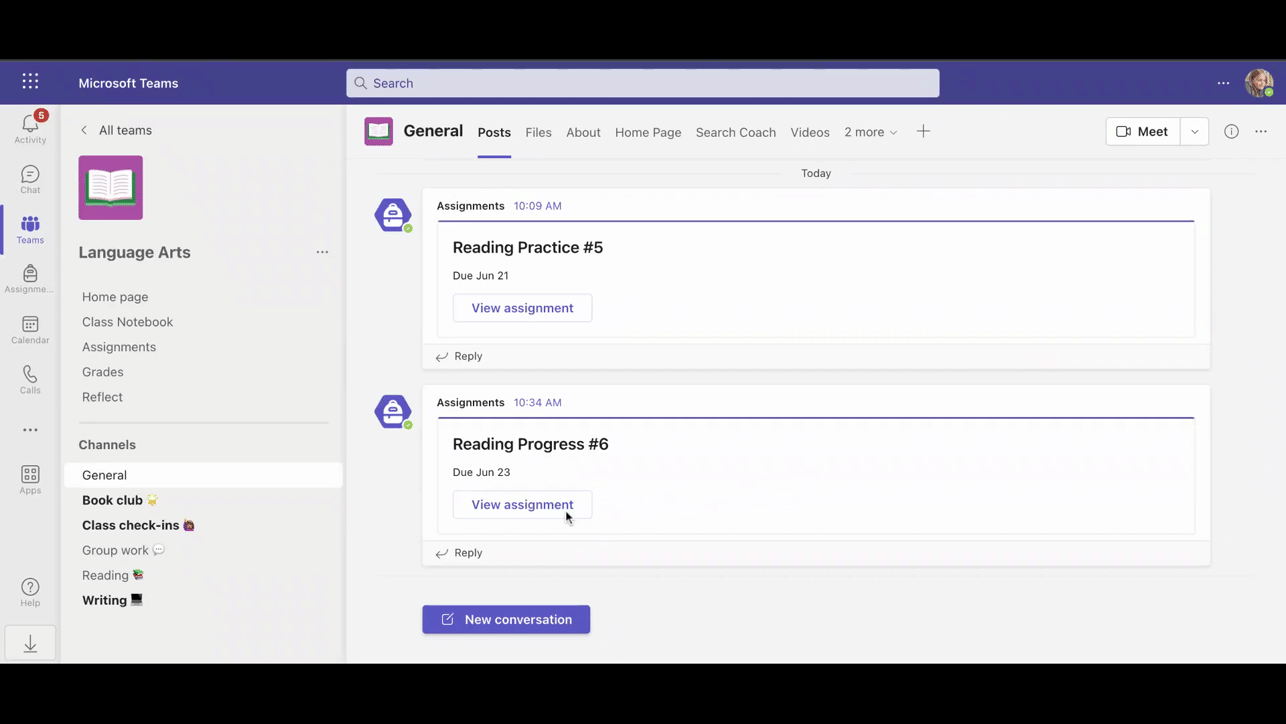
Student experience of opening a Reading Progress assignment and using Reading Coach in Microsoft Teams.
Tom partnered with What Worked Education, an organisation that helps educators perform small scale classroom trials, to create an unbiased study and measurable methodology for his inquiry. Once the eight-week study was completed, they helped to analyse and test the significance of the results.
Here’s what we learned from our Reading Progress trial:
- The study group with the Reading Progress intervention over the eight-week period improved their reading rate on average by 22.43 words per minute, compared to the control group with no intervention, which did improve, but only by 10.5 words per minute.
- Reading accuracy for the intervention group improved by 13.29%, compared to only 4% for the control group.
- The number of mispronunciations were down by 7 words on average per task for the intervention group, compared to a decrease of only 3.5 words for the control group.
"Using Reading Progress has really added another dimension to foreign language teaching, allowing students to regularly practice their speaking skills outside of lessons and get detailed feedback on how to improve. The Insights tool for educators is great to help identify trends and to facilitate adaptive teaching. For students who are self-conscious when studying another language, the tool provides a safe space for them to work on their spoken language and become more confident in classroom situations." - Tom Harman, Modern Foreign Language Teacher, The Royal Grammar School Newcastle, UK
A resounding success for Tom and his Spanish students. It is also worth noting that as soon as the eight-week intervention was completed the other group of students then started to receive the intervention and therefore, also started to benefit from using Reading Progress.
The school now plan to carry out further studies using Reading Progress within our Modern Foreign Language Department and with other groups of students in our Junior School.
Discover how Reading Progress and Reading Coach can enhance your students’ reading skills today.

